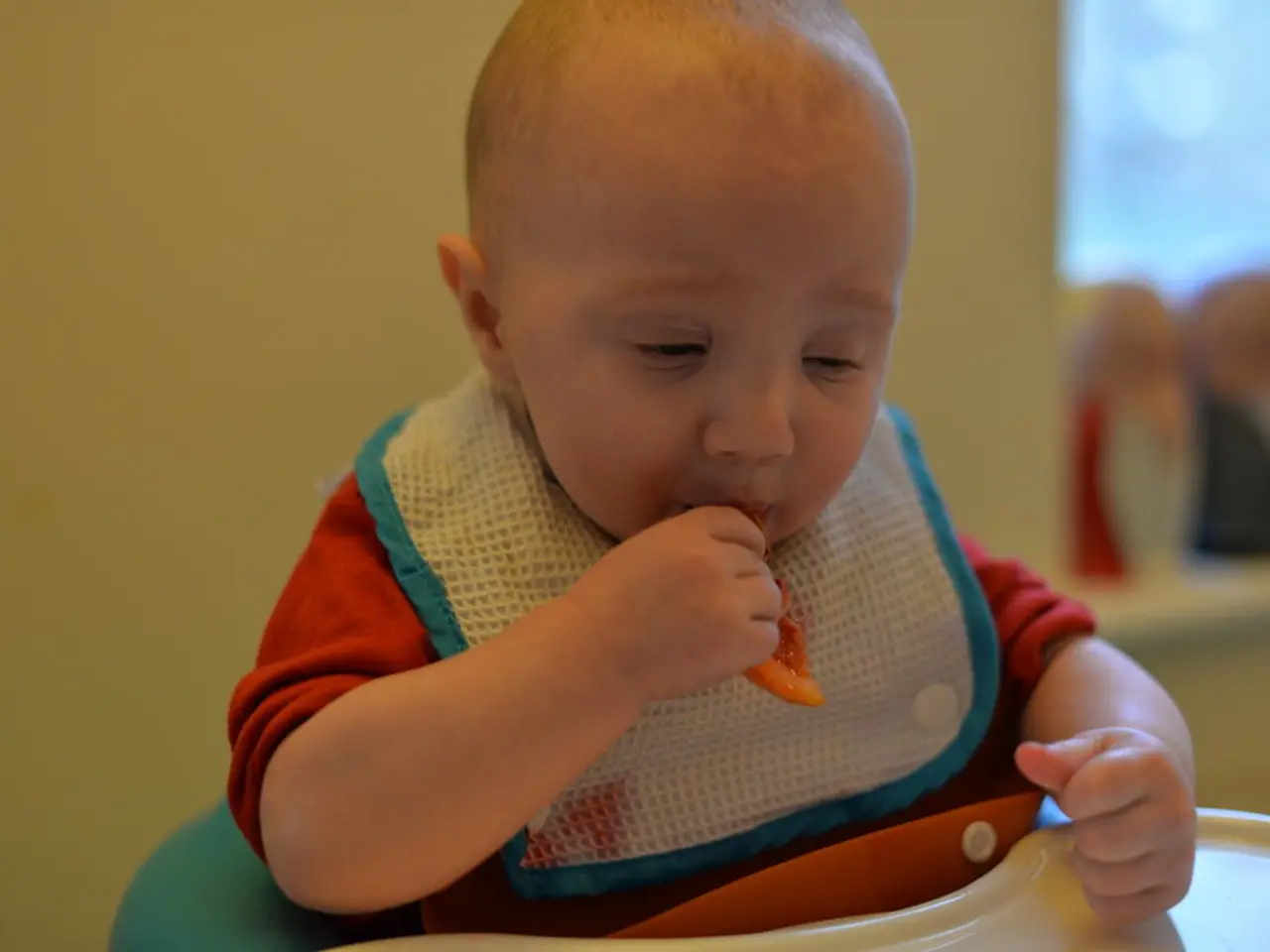Nutritional Safety Regulations for Infant Food in Nigeria
In Nigeria, the health and well-being of infants and young children are of utmost importance. The Nigerian baby food guidelines aim to ensure the nutritional adequacy and safety of food for this age group, setting them up for a healthy future.
Breastfeeding Guidelines
The World Health Organization (WHO) recommends exclusive breastfeeding for the first six months of life. This practice is crucial for optimal infant nutrition and health. Breastfeeding should be initiated within the first hour of birth to benefit from the health-protecting colostrum. Strong support systems, including extended maternity leave and workplace lactation facilities, are essential for mothers to successfully breastfeed exclusively.
Introduction of Complementary Foods
Complementary foods should be introduced at around six months of age, alongside continued breastfeeding. After six months, babies should be fed a variety of foods to ensure they receive a balanced diet. This includes grains, legumes, dairy products (once appropriate), flesh foods, eggs, vitamin-A-rich fruits and vegetables, and other fruits and vegetables. Aim for the consumption of five or more food groups out of eight to ensure adequate nutrients.
Safety Guidelines
Refrain from using glucose water, infant formula, and other pre-lacteal feeds, which can compromise the baby's immunity and disrupt breastfeeding initiation. Alcohol should never be given to infants, as it poses severe health risks and can lead to child abuse.
General Recommendations
Ensure mothers have access to nutrition counseling and support systems to facilitate optimal feeding practices. Hospitals should adhere to Baby-Friendly Hospital practices, which support breastfeeding and appropriate feeding guidelines.
When preparing homemade baby food, cook all food thoroughly to kill any harmful bacteria or parasites that may be present. Store homemade baby food in small, airtight containers to prevent spoilage and contamination. Use boiled and cooled tap water or bottled water labeled as "drinking water" or "purified water" when introducing water to babies.
Always discard any leftover food that has been left at room temperature for more than two hours. Be vigilant about food safety when feeding Nigerian babies, monitoring any potential signs of food poisoning, and consulting a pediatrician if any difficulties or concerns arise.
Utensils, bottles, and containers used for feeding should be properly sterilized to prevent the growth of harmful bacteria. Avoid heating store-bought baby food in plastic containers, as chemicals may leach into the food. Ensure the baby is in an upright position while drinking water to minimize the risk of choking.
When offering water to babies, transition them from bottles to cups to encourage proper oral motor skills. When introducing solid foods, parents are advised to start with small quantities and gradually increase as the baby grows.
Nigerian guidelines stress the need for proper food storage to maintain freshness and prevent bacterial growth. Make sure that meat, poultry, and fish are cooked until they reach the appropriate internal temperature. Refrigerate homemade baby food promptly and use it within 48 to 72 hours.
Avoid using water from untrusted sources, such as wells or rivers, as they may contain harmful contaminants. Parents should introduce one new food item at a time, observing the baby for any signs of allergies or adverse reactions.
Pre-packaged baby foods must meet specific labeling requirements, including clear indications of the age range and nutritional information. Label each container with the date of preparation to ensure freshness and avoid using expired food.
Regular monitoring and enforcement by the regulatory bodies, such as the National Agency for Food and Drug Administration and Control (NAFDAC) and the Standards Organization of Nigeria (SON), ensure compliance and protect consumers from unsafe baby food products.
Properly store any opened store-bought baby food according to the manufacturer's instructions. Freeze leftovers in individual portions for future use, but make sure to thaw them properly before serving. Processed foods high in salt, sugar, and artificial additives should be avoided due to their potential negative impact on baby's health.
In conclusion, it is essential for parents to familiarize themselves with these guidelines to provide the best feeding practices for their little ones. By adhering to these guidelines, parents can set their babies up for a healthy future.
- The World Health Organization recommends exclusive breastfeeding for the first six months of a child's life for optimal nutrition and health.
- Complementary foods should be introduced at around six months of age, alongside continued breastfeeding, to ensure a balanced diet for babies.
- Safety guidelines advise against using glucose water, infant formula, and other pre-lacteal feeds, as they can compromise a baby's immunity and disrupt breastfeeding initiation.
- Access to nutrition counseling and support systems for mothers is essential for facilitating optimal feeding practices.
- Hospitals should adhere to Baby-Friendly Hospital practices, which support breastfeeding and appropriate feeding guidelines.
- When preparing homemade baby food, cook all food thoroughly and store it in small, airtight containers to prevent spoilage and contamination.
- Nigerian regulations require proper food storage, labeling, and monitoring to maintain freshness, prevent bacterial growth, and protect consumers from unsafe baby food products.




